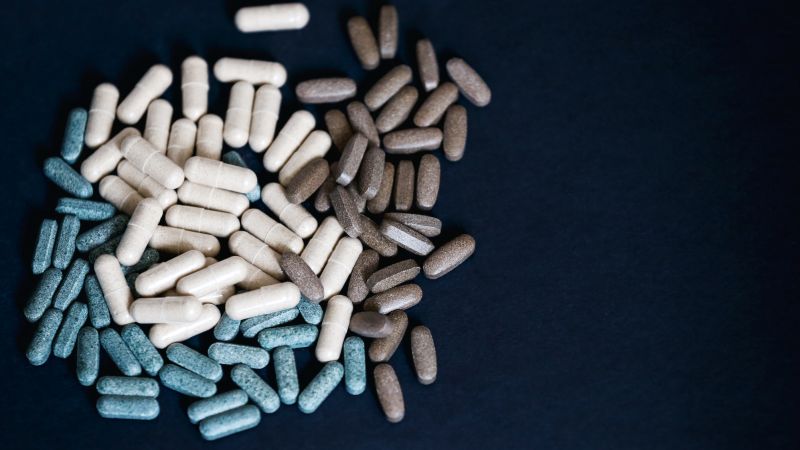CNN –
The U.S. Food and Drug Administration issues a new warning about the risks of probiotics for hospitalized premature babies. The products have been linked to over two dozen reported adverse events since 2018 and one death in 2023, the agency said.
On Thursday, the agency said it had sent a warning letter to manufacturer Abbott Laboratories for its Similac Probiotic Tri-Blend product, which the FDA described as an unapproved new drug and unlicensed biologic product. The company has agreed to stop selling the product, the agency said.
In a statement Friday, Abbott said the issue involves “a single probiotic additive” for Similac Probiotic Tri-Blend and that the probiotic is used by fewer than 200 hospitals. It does not apply to other Abbot infant formula products.
“Parents and caregivers can continue to find and use Similac infant formula nationwide. This warning letter does not address a manufacturing quality issue. “This product has been used for several years and has a strong safety profile,” the statement said.
Probiotics, which contain live bacteria or other microorganisms for health reasons, are widely used as dietary supplements in the United States. Because they are considered dietary supplements, probiotic products are not subject to a stricter FDA approval process.
In hospitals, probiotics are often used to treat necrotizing enterocolitis, a life-threatening intestinal inflammation in premature babies. According to Dr. According to Dr. Katherine Chetta, a pediatric neonatologist at the Medical University of South Carolina, the disease can affect up to one in 20 infants, resulting in about one baby dying every day.
The American Academy of Pediatrics says about 10% of premature babies in neonatal intensive care units receive probiotics, a number that is steadily increasing across the country. They are one of the “main tools” health care providers use to treat NEC, Chetta said.
However, the FDA remains skeptical about the use of probiotics to treat the disease. In a press release, the agency said there are “conflicting data” on the safety and effectiveness of probiotics for preventing necrotizing enterocolitis. It called for more “high-quality clinical trials” that could provide definitive evidence.
“Adverse events in any infant following the use of a probiotic are of concern to the FDA. In particular, we would like to make it clear that products containing live microorganisms may pose a serious risk to premature babies in hospitals,” said Dr. Peter Marks, director of the FDA’s Center for Biologics Evaluation and Research, in a statement.
Earlier this month, the FDA also reported that an infant died after receiving the probiotic Evivo with MCT oil. The product, manufactured by Infinant Health for use in hospitals, contained the infantis subspecies of the live bacterium Bifidobacterium longum. The baby died after developing sepsis caused by the same type of bacteria.
In a warning letter, the agency warned healthcare providers that bacteria and fungi contained in probiotics could put premature babies at risk of “invasive, potentially fatal” infections. The product was recalled after the FDA sent a warning letter and is no longer available in the United States.
The FDA emphasized that it has not approved probiotic products for infants of any age and the products have not been evaluated for safety, effectiveness or compliance with manufacturing and testing standards.
“Today’s message is to warn parents, caregivers and healthcare providers that these products, when used to prevent or treat disease, have not been subjected to the agency’s rigorous premarket process to assess their safety, effectiveness and quality for these medical uses.” , Marks added.
The American Academy of Pediatrics also does not recommend the supplements for premature babies.
“Given the lack of FDA-regulated, pharmaceutical-grade drugs in the United States, conflicting safety and efficacy data, and the potential for harm in an extremely vulnerable population, current evidence does not support routine, universal administration of probiotics to premature infants. particularly those with a birth weight of <1000 g,” says a 2021 clinical report from the pediatric group.
However, some doctors are concerned about the FDA’s opposition to probiotic therapy.
For many infants treated in hospitals, antibiotic treatment can alter the ecosystem, or microbiome, of bacteria in a baby’s gut, killing “good” types of bacteria and leaving behind “bad” types like E. coli, Chetta explained. Probiotics can help reintroduce more diverse, healthy bacteria into the infant’s body, restore the microbiome and ward off infections such as NEC.
For Chetta, there is enough data to support the use of probiotics, especially as hospitals like hers choose probiotics that they say have shown effect.
“We have a lot of confidence in the probiotics we use,” Chetta said. “We know that with probiotics the babies actually get less sepsis, they get less NEC and they die less. “The real concern was and is: When will the FDA approve a product?”
The chance of an infant receiving probiotics developing sepsis is about 1 in 5,000, which is far lower than the 1 in 20 chance of NEC infection, Chetta said. When preparing to treat an infant with probiotics, it also gives parents a say in evaluating the risks—including that the treatments are not FDA-approved—versus their effectiveness as a treatment. For them, these benefits far outweigh the harm.
“The answer is not to simply remove all probiotics,” she said. “The answer lies in finding a safe solution that gives our babies the medicines and supplements they need.”

